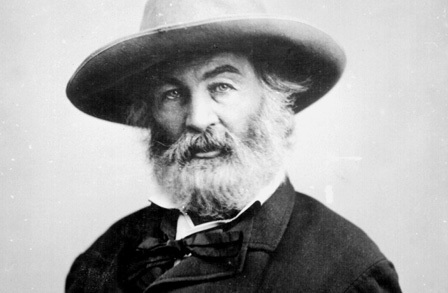Labelling others: Part 1 “Bad person”

You no doubt have seen it often enough, perhaps said it yourself: It’s a variation on “Only a bad person would do that!” Yet, we must also wonder about what constitutes a bad – or immoral – action as opposed to an immoral person. This phrase is used often enough in online debates and there is a danger that by labeling someone as such for articulating a specific view, we negate him from personhood completely, in terms of moral reflection.
This doesn’t mean people can never deserve our denigration or dismissal from our lives; but similarly, people who do bad things do not all deserve universal and eternal dismissal either.
Indeed, it’s this attitude which, for example, creates a sometimes unnecessary stigma around people who have been to prison – even when these people have been completely exonerated afterward (the TV-series “Rectify” deals with this and related issues).
I think the question of bad person and bad action is more difficult than we initially recognise.
Disagreement does not mean evil
A bad person is not, by definition, someone who disagrees with you. A bad person is not, by definition, an individual who thinks sex work should be criminalised, who thinks the death penalty is a good thing, who thinks climate change is a myth (or the opposite, depending on your views).
We can engage, discuss, articulate to varying degrees of comprehension: Some of us are better than others at this. Online is particularly hazardous, where we’re limited by character-length, allowed anonymity, denied seeing others’ faces, expressions, hearing their voices. All communication has limits, of course, but it’s particularly harsh online due to a combination of it being instantaneous in its delivery and giving us the ability to target the people we want.
Consider the man who told classicist Mary Beard that she was a “filthy old slut” and that he wasn’t afraid of his view being known. As soon as there was a threat to send the offensive Tweets to the user’s mother, however, he soon apologised, claiming it had been “a good lesson”.
We are right to wonder whether this person would’ve said such horrible things directly to Mary Beard’s face. Perhaps, spurned on by various other individuals on social media, belief that he was immune and treating Professor Beard as merely pixels on a screen, he felt little worry saying it.
Why online vitriol happens – and whether it happens more, or is of greater intensity, or is merely revealing what always happened everyday – is a difficult topic that we won’t cover here. Martin Robbins, as always, does an excellent job of discussing this issue. (An important point: Anonymity is probably not as big a factor as we’d like to think for vitriol, trolling, anger, etc.)
However, what we often see is people in comment sections, Tweets and elsewhere, declaring others are bad, worth dismissing entirely, etc., based on disagreement. Based on defending or promoting views that are at best controversial or at worst merely different.
Yet, differing opinion should not be considered sufficient justification to think someone is evil or bad or horrible. (We’ll come to reasons that perhaps we can think someone is later.)
The main problem with considering everyone who holds a particular view as bad is that it doesn’t allow us to tackle their arguments: we’ve dismissed them into the realm of the villain.
Not all views are the same; some are worse than others, some are more likely to be held by those who are bad, harmful individuals.
Arguments can be incredible stupid, bad, backward. We should do what we can to undermine those views, with reason, argument, evidence. But that doesn’t mean we’ll be successful; it doesn’t mean we should always do so; and it doesn’t negate that those who stubbornly insist on obviously bad views – women are always to blame for their rape, all Muslims are terrorists – are sometimes beyond the engagement of reasoned debate.
However, to respond to someone who disagrees with you about, say, depression as a “real” condition the same way we respond to rape apologists helps no one – including yourself.
One of the best ways we improve is to be told why we’re wrong: Imagine if opportunities to learn were missed because everytime you expressed an ignorant statement, you were relegated to the same villain circle as rape apologists; you were sworn at, name-called, derided.
We should have very good reasons – not knee-jerk ones – for putting someone in the villain circle.
The continuum problem
Do bad people exist? I think the existence of Ariel Castro and Josef Fritzl answers that in the affirmative.
But again, we can all see a difference between your vegetarian opponent and a man who traps his daughter and rapes her for twenty-four years.
I don’t have a definitive answer but we can probably define a bad person as someone who intentionally causes unwanted harm to others.
The problem – as always with definitions – is how far this extends and so on.
We can obviously call homophobes who beat up gay people in the street bad people; but what about people who have never touched gay people who teach their kids that gays and lesbians are not real people, are worthy of scorn and dismissal. In other words, what about those who help foster the systematic belief network that allows for horrible actions to take place. If there weren’t a ubiquitous homophobic element in many aspects of society, we probably wouldn’t see as many attacks, dismissals and horrible treatment of gay people – thus, those who help maintain that element are part of why homophobic thugs attack gays.
Similarly, what about our complicity in poverty, in needless animal suffering (animals count as “others”), in sexist and misogynist attacks? We could always give more of our money or time to help those less fortunate and this systematic ignorance is no doubt a factor in maintaining poverty; our continuing to eat meat on such a large scale obviously fuels the industries causing chickens, cows and sharks to suffer; and so on.
Perhaps we can say we don’t intend to keep poverty, or whatever, alive: we donate to charity or whatever. Perhaps our recognition is sufficient to undermine our being bad people; we are trying, even if apathy, discomfort and so on, sometimes overpowers us toward doing nothing to change.
Again: the point is there’s obviously a difference between Fritzl and you not donating enough. But when we start going down the continuum, we start to see lines blur between, say, making casually or unintentional racist statements and not helping fight racist beliefs.
This is a difficult problem. Consider also those with mental disabilities or who cannot understand harm, too. Are they bad people? The Insanity Defence is a clear example such things matter in terms of how we assess such actions.
Furthermore, various actions can take place: ignoring, dismissing, no longer engaging with someone without thinking she is a bad person. You can recognise your arguments are not going to get through, for example, without thinking she’s going to directly harm someone with her stubborn refusal to accept evidence that sex work is not comprised by mostly kidnapped teenage girls.
The world is complex, people mess up in communication. This means we should have good reasons for relegating people to villainy: it’s not impossible, it should just be more considered. People aren’t static, nor are they the sum of their drunken, raging Tweets. Sure: we now have greater insight into people – it says something that you make transphobic statements, send threats to Oxford classicists, etc. We might have reason to avoid, ignore, and so on.
We have a whole range of options in our responses.
And calling someone a bad person, thinking they’re evil or belong in the realm of villains needs to be justified, like anything else. It is insufficient, as we’ve seen, to premise it entirely on disagreement; communication is difficult; and there exists a continuum that should make us aware a response to a Christian defending god mustn’t be the same as person threatening rape.
—
Next I want to look at name-calling itself: when we label people as “dicks”, “assholes”, “prissy”, using an example that rocked the gaming industry recently.
—-
Image Credit: Dmitrijs Bindemanis / Shutterstock




